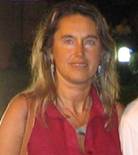
Newsroom
Lecture on April 17, 2014
Time: 15:30, April 17, 2014
Venue: Room 102
Speaker: Eduardo Orias,University of California Santa Barbara

Title: Programmed somatic reversal of germline chromosome translocations in Tetrahymena
Introduction to the Speaker:
Eduardo Orias. Research Professor, Department of Molecular, Cellular and Developmental Biology, University of California Santa Barbara, Santa Barbara, CA 93106 USA.
Born in Buenos Aires, Argentina, 1934. Elementary and secondary education in Cordoba, Argentina. Higher education at University of Michigan, USA: B.S. in Physics, 1955; Ph.D. in Zoology, 1960. Faculty member at University of California Santa Barbara, 1959 to date. Guest investigator at Stanford University, Palo Alto, CA, USA, 1968; Biological Institute of the Carlsberg Foundation, Copenhagen, Denmark, 1975; Albert Einstein College of Medicine, New York, USA, 1980; University of California Berkeley, CA, USA, 1986; Mitsubishi Kasei Institute of Life Sciences, Machida Japan, 1988. Invited lecture series: Universities of Camerino, Pisa and Padova, Italy, 1990. Institute of Hydrobiology of the Chinese Academy of Sciences, Wuhan, China, 2005; Gulbenkian Institute of Science, Lisbon, Portugal, 2012.
102 peer-reviewed research publications, mainly in the areas of genetic, molecular, cell, developmental, and genomic biology of the ciliated protozoan, Tetrahymena thermophila, a unicellular model eukaryote. Current research interests: programmed somatic DNA rearrangements; mating-related allorecognition; nanoparticle trophic transfer in an experimental food chain.
President of the International Society of Protozoologists, 1997-1998. Coordinator, Tetrahymena Genome Sequencing Initiative, 1999-2003. Recipient of the Emile Maupas Medal for contributions to the genetics of ciliated protozoa in 2003. Recipient of University of California Santa Barbara Chancellor’s Award for Excellence in Undergraduate Research Mentorship, 2007.
Speaker: Cristina Miceli,University of Camerino

Title: Transcriptome of Euplotes focardii: hints of cold adaptation and other distinctive features
Introduction to the Speaker:
Education and Professional history: 1979, degree in Biological Sciences, University of Pisa. 1979-1983, fellowship, University of Pisa; 1983-1987, Researcher, University of Camerino; 1987-1993, Associate professor of Zoology, University of Camerino; 1993-present, Full professor of Cell Biology, University of Camerino, School of Biosciences and Biotechnology.
Scientific activities: Research activities are focused on molecular and cellular biology using eukaryotic microorganisms, as models. The research fields are the following: molecular evolution of cytoskeletal proteins, in particular tubulin and microtubule associated proteins; genome organization and control of gene expression; molecular and cellular adaptation mechanisms in organisms living in extreme environments; bioindicators in environmental monitoring. Visiting researcher at the University of California, Santa Barbara and Irvine; Co-organiser, Chairman and Invited speaker in several International Congresses of Protozoology, Gordon Conferences and Faseb Meetings on"Molecular Biology of Ciliates" also sponsored by EMBO; Vice-President of the International Society of Protozoology; member of the Editorial Board of the Journal of Eukaryotic Microbiology.
Principal grant sources of the last years: PRIN 2004-2006, 2006-2008, 2008-2010 (the last two projects are on molecular evolution of tubulins); CNR (applied project on Environmental Biotechnology, finished in 2004), National Research Project for Antarctica (Genomics and Proteomics of ciliates 2006-2010); Scientific coordinator of EU-COST(European cooperation in Science and Technology) project: COST Action BM1102 Ciliates as model systems to study genome evolution, mechanisms of non-Mendelian inheritance, and their roles in environmental adaptation.
Academic activities and responsibilities: ProRector for Doctoral Education and implementation of Bologna Process from 2008 to 2011; Director of the School of Advanced Studies, that includes PhD and master programs, from 2005 to present.